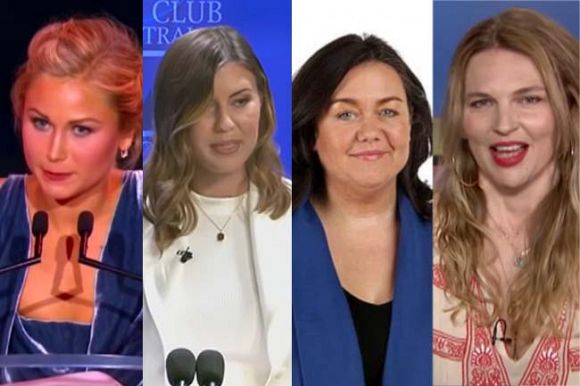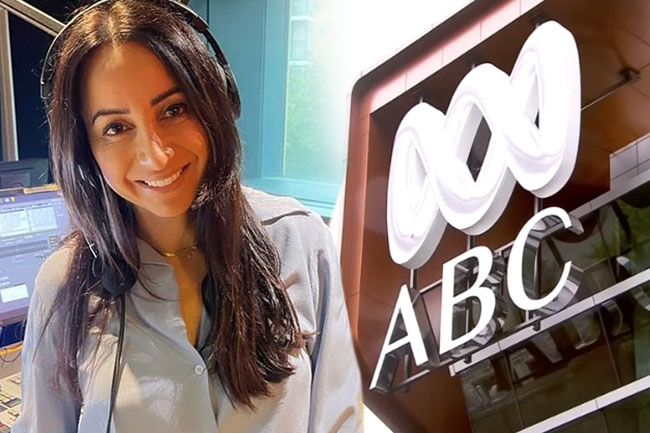The Johnny Depp and Amber Heard spectacle demonstrates the damaging consequences of cognitive bias in domestic violence cases, writes Dr Jennifer Wilson.
*CONTENT WARNING: This article discusses domestic abuse
THIS ISN’T an article about the tortured marriage between Amber Heard and Johnny Depp, details of which you can find here, here and here. Public reaction to this story is a story in itself, with associations to the #MeToo movement and televised exposure of the complexities of domestic violence stirring strong public reactions.
It’s an important demonstration of how cognitive biases (prejudices, assumptions, beliefs, emotions we already hold) influence opinions about a situation, especially in circumstances where truth and facts are difficult to ascertain.
As an example, here is a brief look at how three Australian feminists expressed very different points of view about the antagonists and their circumstances on Twitter — views that reflect global social media reactions made possible by the live streaming of defamation proceedings brought by Depp against Heard.
For context, at the time of writing, TikTok videos supporting Johnny Depp had some 11.3 billion views, while #JusticeForJohnnyDepp had reached around 5.6 billion.
#JusticeForAmberHeard was only running at around 21 million. There is informed speculation that social media support for Depp is “orchestrated” rather than organic.
Feminist writer and activist Clementine Ford, a strong supporter of Heard, took on Tasmanian Greens MP Cassy O’Connor, a strong supporter of Depp.
Ford tweeted:
‘Late to this but it’s concerning to see the leader of the Tasmanian Greens @CassyOConnorMP coming out so hard for a man who talked about fucking his wife’s burnt dead corpse — the same woman he called a cum guzzler, a flappy fish market and who he promised global humiliation to.’
Ms O’Connor eventually published an apology for her Depp advocacy, which included a disparaging reference to Ms Heard made in the Tasmanian parliament and recorded in Hansard:
To victim survivors and those who represent them, as well as Greens supporters, I am sorry not to have bitten my tongue in this instance. I had watched too much of the trial.
I hope my record of advocacy and law reform over the past 14 years will, ultimately, speak for itself.
There’s sadly nothing unusual about strangers taking sides in domestic abuse allegations, particularly when it’s trauma framed as entertainment, and particularly when it’s alleged to have occurred in the marriage of a popular male Hollywood icon and the less acclaimed woman whose role as his former wife is far more well-known than her achievements as an actor.
However, unless we’re the judge or a member of the jury, our opinion is not relevant to the outcome. Survivors of domestic abuse, the majority of whom are women and children, suffer in a climate fuelled by personal opinions masquerading as truth claims.
There then emerged a third perspective voiced by a widely followed and anonymous Twitter account that presents as a woman and feminist, using the pseudonym Ronni Salt. This account stated they have closely followed the trial and have a background in law and domestic violence.
The account’s position is that both Depp and Heard are “toxic messes”, “awful people” and that the abuse was mutual. In other words, there is a perceived symmetry to the violence that results in a “both sides are as bad as each other” melodrama.
Salt tweeted:
What makes you think you're the only person with experience with DV and the law? You think I don't have a background in that too?
Doesn't give you the front seat on anything.
My opinion is based on what I read and observed. I don't owe you a thing. Go and be "gutted" somewhere else.
The concept of “mutual abuse” has been debunked by experts who point out that abuse is above all to do with power. It’s a false equivalence to claim that violence perpetrated in order to terrify and control is of the same moral nature as violence that is perpetrated in self-defence. Where there is power there is frequently resistance and victims might well fight back in whatever ways are available to them.
The “mutual abuse” conclusion is especially harmful to imperfect victims (victims who behave in ways considered offensive and in so doing, lose sympathy). Many victims in domestic violence situations are, by virtue of our circumstances, “imperfect”. The denial of nuance and complexity inherent in the mutual abuse argument always works in favour of the primary abuser, who is absolved of responsibility for their actions because “it was mutual”.
There is also an implication that if both parties are “toxic messes” and “awful people” it doesn’t matter quite so much — they are both as bad as each other and so the matter may safely be located outside the concern of normal, non-abusive people.
What is common to all three perspectives is the conviction held by each woman that her interpretation is the truth. Ford and O’Connor took sides, along with millions of others who found in Heard or Depp’s account the narrative that most suited, while Salt concluded they were as bad as each other. Clearly, they can’t all be right.
Cognitive biases are frequently employed – consciously or unconsciously – when truth is difficult to ascertain, when situations are complex and when strong emotion is in play. Perhaps the most significant aspect of the Depp/Heard spectacle, for those not directly involved, is the way in which it inadvertently highlights these biases and the damaging effects they can have on survivors and society.
Disclosure: I am a survivor of life-threatening domestic violence and child sexual abuse. I acknowledge the influence on me of those experiences. I remain a messy survivor. I hope I am no longer toxic or awful, though I have at times in my journey undoubtedly been both.
If you would like to speak to someone about domestic violence, please call the 1800 Respect hotline on 1800 737 732 or chat online.
Dr Jennifer Wilson is an IA columnist, a psychotherapist and an academic. You can follow Jennifer on Twitter @NoPlaceForSheep.
Related Articles
- Australia's Family Court system failing to protect children
- JENNIFER WILSON: The Government needs to do more to end domestic violence
- How the courts are dealing with domestic violence cases during COVID-19
- COVID-19 lockdown: A breeding ground for domestic abuse
- Victims of domestic violence are never alone
 This work is licensed under a Creative Commons Attribution-NonCommercial-NoDerivs 3.0 Australia License
This work is licensed under a Creative Commons Attribution-NonCommercial-NoDerivs 3.0 Australia License
Support independent journalism Subscribe to IA.














